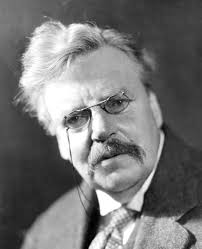I rarely read articles on, How to Write, or, What Makes a Good Writer?
If I do, it?s for entertainment purposes only, like why people watch the news ? it?s a guilty pleasure. I know that some people take articles of this sort seriously, but unless the advice is coming from Bukowski, or?Hemingway? or Tolstoy, or some other writing giant of the past, I personally don?t really care for what?s been said. Not because my ego is the size of Uranus and I think I know everything, but because the advice is always exactly the same from article to article, only ever allowing for a slight twist. Anne frankly, the only good advice for writers can be summed up in a single sentence:
Read a lot, write a lot, write what?s true for you, and live.
But something else I?ve noticed is people?s reluctance to write articles about developing your writer?s voice. And understandably so.

?I owe my success to having listened respectfully to the very best advice, and then going away and doing the exact opposite? ? G.K Chesterton
In part, this sentiment is true. No one can teach you how to write with your own voice. It?s your voice. Building and developing it is a job reserved exclusively for your own?flatulent?self. Sure, it?s a process that can be aided by others, but ultimately, it can?t be specifically fuelled by others. Alas, it certainly cannot be taught.
For this reason, the phrase, developing your writer?s voice, in my mind, sounds misleading.
Because developing your writer?s voice has nothing at all to do with writing. Who?d have thought?
The articles that I have come across speak of writing style, flow, turns of phrase specific to you, and how you shouldn?t compare your own ?voice? with that of another.
This is silly.
Why? Easy. Because listening to these tips is using ? or rather, directly implementing ? someone else?s ideas instead of utilising and developing your own. Developing your writers voice is purely about developing you: Your ideas, your thought processes, your loves, your passions, your hates, your fears, your hopes and dreams. And then bleeding them onto the page.
Everything I write is personal to me in some way, and I?m comfortable with sharing these written details. I?m comfortable with wearing my little black heart on my sleeve, and letting my crazy shine with total transparency. I?m convinced that possessing this sort of brutal honesty with your own self is, I think, the only way to truly develop your ?writer?s voice.? Only then will your writing feel authentic and real.
Not that this says anything about my writing, but whenever I have my friends read my own work, the most common thing they say, regardless of what?s been written:
?I can hear your stupid voice in my head whenever I read your shit. Get out of my head, asshole.?
This isn?t because I?m a particularly good writer. It?s because I understand me, all of me, the good, the bad, the ugly, the beautiful, and the strikingly weird.
Ultimately, being able to express yourself well through writing is one thing, and it certainly can be taught, being able to express the?you?underlying your writing is another. And finding the ?you? behind your own voice, outside of writing, is the only way to really develop this writer?s voice everyone (cause I know everyone *shakes fist*) so desperately yearn for.
So there you have it. Writing advice from a dude who?s not studied writing at a tertiary level. A dude who?s not ever had any of his work published. But a dude who nonetheless, has an opinion on just about fucking everything. And speak it, in his own voice, he does.
(Just don?t take anything he says too seriously, cause he?s proper twatwaffle crazy, and that would defeat the entire point of this post).
Humans-are-story-tellers. Whose story is you tellin??
Like this:
Loading...
Source: http://humansareweird.com/2013/04/08/developing-your-writers-voice/
presidents day mindy mccready mindy mccready downton abbey nba all star game danica patrick Michelle Laxalt
No comments:
Post a Comment